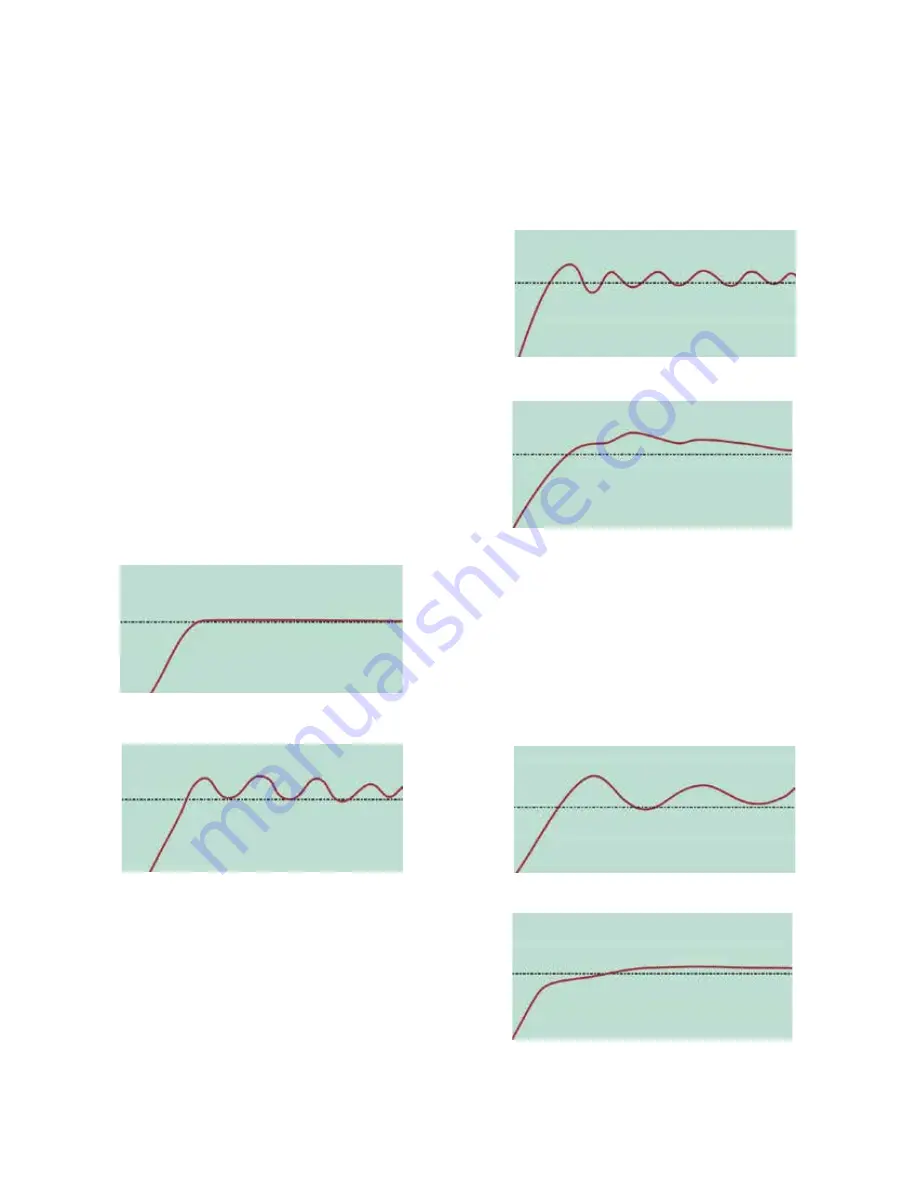
81
Fine Tuning
Small adjustments can be made to correct minor con-
trol problems. These examples assume reverse acting
control (e.g. heating). Adjust accordingly for direct ac-
tion. If they do not help solve the problem, re-tune the
controller as detailed on the preceding sections.
Note:
When fine tuning the settings, only adjust one
parameter at a time, and allow enough time for the
process to settle into its new state each time you
change a value.
Cycle Times
A separate cycle time adjustment parameter is provid-
ed for the Primary and Secondary control when using
time-proportioning control outputs.
If the process oscillates at the same frequency as the
cycle time, it indicates it may be too long for the pro-
cess. Decrease the cycle time and re-check the period
of oscillation, if it has changed to match the new cycle
time this confirms that the time is too long.
If the control actuators will accept it, continue reducing
the cycle time until the process stabilizes, or no further
improvement is seem. Recommended times. Relays
≥
10 seconds. SSR Driver 1 second.
Proportional Cycle Times
Ideal: Stable Process
Too Long: Oscillation period = cycle time.
Note:
Adjusting the cycle time affects the controllers
operation; a shorter cycle time gives more accurate
control, but mechanical control actuators such as re-
lays will have a reduced life span.
Proportional Bands
Increase the width of the proportional bands if the pro-
cess overshoots or oscillates excessively. Decrease
the width of the proportional band if the process re-
sponds slowly or fails to reach setpoint.
Proportional Bands
Too Narrow: Process Oscillates
Too Wide: Slow warm up and response
Integral Time Constant
To find the optimum integral time, decrease its value
until the process becomes unstable, then increase it a
little at a time, until stability has is restored. Induce a
load disturbance or make a setpoint change to verify
that the process stabilizes. If not increase the value
some more and re-test. If the response is too slow, de-
crease the integral time, but avoid instability.
Integral Time
Too Short: Overshoots and oscillates
Too Long: Slow warm up and response
Summary of Contents for Chromalox 4081
Page 2: ...B ...















































